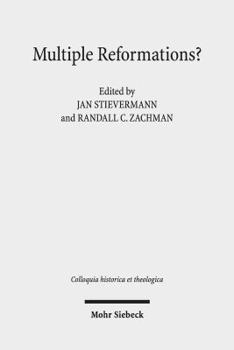Multiple Reformations?: The Many Faces and Legacies of the Reformation
This volume explores the inherent pluralism of the Reformation and its manifold legacies from an ecumenical and interdisciplinary point of view. The essays shed new light on several key questions such as: How do we interpret and assess the Reformation as a historical and theological event, as a historiographic category, and as a cultural myth? And what are the long-term global consequences of the Reformation period as manifest in the rise of competing...
Format:Hardcover
Language:English
ISBN:3161556526
ISBN13:9783161556524
Release Date:November 2018
Publisher:Mohr Siebeck
Length:402 Pages
Weight:1.70 lbs.
Dimensions:1.3" x 6.3" x 9.6"
Customer Reviews
0 rating





